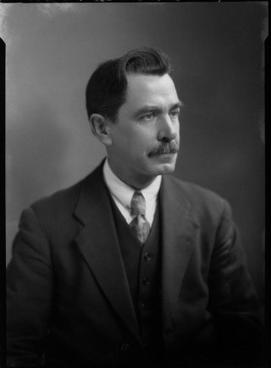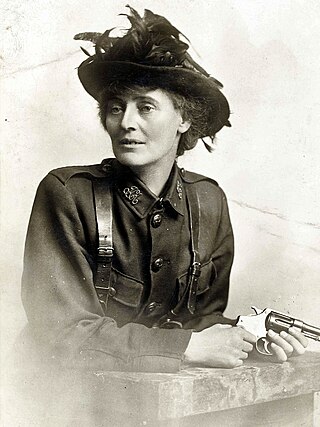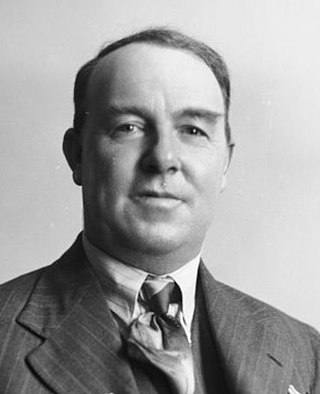Related Research Articles

James Henry Thomas was a Welsh trade unionist and Labour politician. He was involved in a political scandal involving budget leaks.

Sir Charles Edward Henry Hobhouse, 4th Baronet, TD, PC, JP was a British Liberal politician and officer in the Territorial Force. He was a member of the Liberal cabinet of H. H. Asquith between 1911 and 1915.

Magnus Nilssen was a Norwegian politician for the Labour and Social Democratic Labour parties.

Walter Henry Ayles was a British Labour Party politician who served as a Member of Parliament (MP) for 11 years between 1923 and 1953.
Stanley Stephen Awbery was a British trade unionist and Labour Party politician who served as the Member of Parliament (MP) for Bristol Central from 1945 to 1964.

Thomas James Macnamara PC was a British teacher, educationalist and radical Liberal politician.
Walter Hudson was a Labour Party politician in England. He was Member of Parliament (MP) for Newcastle-upon-Tyne from 1906 to 1918.

The representation of women in the House of Commons of the United Kingdom has been an issue in the politics of the United Kingdom at numerous points in the 20th and 21st centuries. Originally debate centred on whether women should be allowed to vote and stand for election as Members of Parliament. The Parliament Act 1918 gave women over 21 the right to stand for election as a Member of Parliament. The United Kingdom has had three female Prime Ministers: Margaret Thatcher (1979–1990), Theresa May (2016–2019), and Liz Truss (2022). The publication of the book Women in the House by Elizabeth Vallance in 1979 highlighted the under-representation of women in Parliament. In more modern times concerns about the under-representation of women led the Labour Party to introduce and, decades later, abandon all-women short lists, something which was later held to breach discrimination laws.
William Ernest Jones, CBE was a British trade unionist.

Concemore Thomas Thwaites Cramp, known as Charlie Cramp, was a British trade unionist and political activist.
Frank Sheppard was a British trade unionist and politician.
James Young was a Scottish trade unionist and politician.
Thomas Charles Lewis was a British trade unionist and politician.
Luke Henry Bateman was a British trade unionist and politician. He repeatedly narrowly missed out on election to Parliament.
William James Abraham was a British trade unionist and politician who served as president of the National Union of Railwaymen (NUR).
Thomas Charles Morris, often known as "Top Cat" Morris, was a Welsh trade unionist and socialist activist, who served on the National Executive Committee of the Labour Party.
Frederick Berriman was a British socialist politician.
John Edward Binks was a British trade unionist and politician, who served as President of the National Union of Railwaymen, and as an alderman on the London County Council.

The 1938 Christchurch City mayoral election was held on 11 May. The incumbent, John Beanland of the Citizens' Association, failed to get the nomination by his party and the surgeon Dr. John Guthrie was nominated instead. The Labour Party nominated Robert Macfarlane. Both the Labour and conservative candidate had been members of Christchurch City Council for some years. Macfarlane narrowly won the mayoralty.
James Coulthard was a British rugby player, trade unionist and politician.
References
- ↑ The Labour Who's Who. London: Labour Publishing Company. 1927. p. 28.